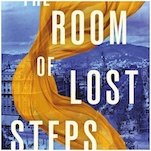1915

The term “genocide” was first coined in 1944 to define the systematic eradication of a group of people. More than seven decades later, its use—except when referring to the Jewish holocaust during WWII—remains a political hot button. Just ask Pope Francis. He recently referred to the extermination of approximately 1.5 million Armenians at the hands of the Turks during the waning days of the Ottoman Empire as the first genocide of the 20th century. The use of the word by the Pope has sent the Turkish government into an uproar because it does not officially recognize the genocide and purports that the killings happened in the midst of a civil war.
The new film 1915, written and directed by Armenian-American filmmakers Garin Hovannisian and Alec Mouhibian, purposely steps right into the middle of this loaded context. The film’s release date is timed to the 100th anniversary of the largely forgotten bloodshed, which commenced on April 24, 1915—a night during which more than 200 Armenian intellectuals were rounded up, deported and eventually executed. While the film over-edifies on occasion, the first-time directors smartly couch the larger political theme in a meta story. Hovannisian and Mouhibian build a tense film with moments of genuine suspense and psychological thrills, all while touching on the larger issues of memory, truth and denial.
1915 begins heavy-handedly: On a Los Angeles stage is theater director Simon (Simon Abkarian), who’s in the middle of a cast pep talk before a one-night-only performance of his play on the Armenian tragedy. The speech is dramatic—you’d expect nothing less from a theater director. He tells the actors, “Denial ends today,” and “Tonight, the fate of the dead will be in your hands… Bring them back to life or you’ll die with them.” Simon’s sermonizing is emphasized by Serj Tankian’s (System of a Down) score, which distracts with a rush of violins and the orchestral swells during the monologue. It’s all a bit too much, too soon.
Thankfully, after this rocky start, the filmmakers largely find their footing to deliver riveting storylines that provide important history lessons along the way. During this final rehearsal, protesters surround the theater outside. Inside, strange occurrences cause an unease among the cast, which includes Simon’s wife Angela (Angela Sarafyan) and James (Sam Page), a Hollywood film star testing his stage mettle. James begins to question Simon’s Svengali-like hold over Angela and, as the mystery unfolds, the director’s other reason for mounting the play proves to be just as personal and profound.
-

-

-

-

-

-

-

-

-

-

-

-

-

-

-

-

-

-

-

-

-

-

-

-

-

-

-

-

-

-

-

-

-

-

-

-

-

-

-

-








































